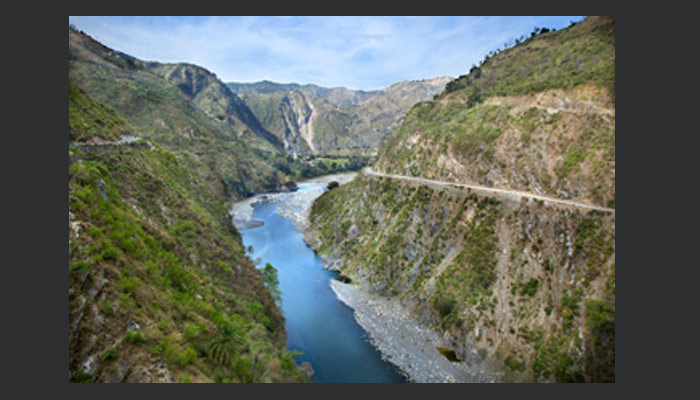TRENDING TAGS :
PM on Indo-Pak Indus Treaty: Water, blood can’t flow at same time
Prime Minister Narendra Modi on Monday chaired a meeting with National Security Advisor Ajit Doval, Foreign Secretary S Jaishankar and other senior PMO officials to review the Indus Water Treaty with Pakistan as the tension heightened between the two countries. The water resources secretary Shashi Shekar was also present at the meeting.
New Delhi: Prime Minister Narendra Modi on Monday chaired a meeting with National Security Advisor Ajit Doval, Foreign Secretary S Jaishankar and other senior PMO officials to review the Indus Water Treaty with Pakistan as the tension heightened between the two countries. The water resources secretary Shashi Shekar was also present at the meeting.
The meeting was aimed at giving a befitting reply to Pakistan in the wake of the Uri attack in which as many as 18 soldiers were killed by Pakistani militants.
"‘Blood and water can not flow at the same time," said the Premier as the meeting concluded.
There have been consistent calls in India that the government scrap the water distribution pact to mount pressure on Pakistan in the aftermath of the terror attack. India last week made it clear that “mutual trust and cooperation” was important for such a treaty to work.
The treaty was signed by the then Indian Prime Minister Jawaharlal Nehru and Pakistan President Ayub Khan in September 1960. According to the agreement the water of six rivers namely Beas, Ravi, Sutlej, Indus, Chenab and Jhelum were to be shared between the two nations but Pakistan had been complaining of not receiving enough water and gone for international arbitration in couple of cases.
Jammu and Kashmir Deputy Chief Minister Nirmal Singh said that his state would fully support whatever decision would be taken by the Union government on the 1960 agreement.“The treaty has caused huge loss to Jammu and Kashmir as the people of the state cannot fully utilise the waters of various rivers, particularly Chenab in Jammu, for agricultural and other purposes,” Singh said.
China connection to Indus river treaty:
- China also holds the control of the river Brahmaputra and according to the officials an assessment of the Indus treaty is bound to factor in China.
- The country has not signed any international water sharing agreement unlike India and Pakistan.
- The authorities stated that if China decides to divert the Indus, India could lose as much as 36 per cent of river water. China also has the option of stopping the flow of Brahmaputra river water into India.
- China is building 11 mega dams on the Brahmaputra and is in a position to hurt India's interests.
Impact of withdrawal by India:
- India can use only 20 per cent of the water of the Indus, which flows through it first, for irrigation, transport and power generation.
- Withdrawal of India from the international pact would be treated as a violation of legal treaty and will give an invitation to international condemnation.
- If the country cuts off the supply to Pakistan, it could cause major crises in the nation as majority of its population is dependent on Indus water.
- Stopping the flow of water, however, would cause floods to Jammu and Kashmir and Punjab.



